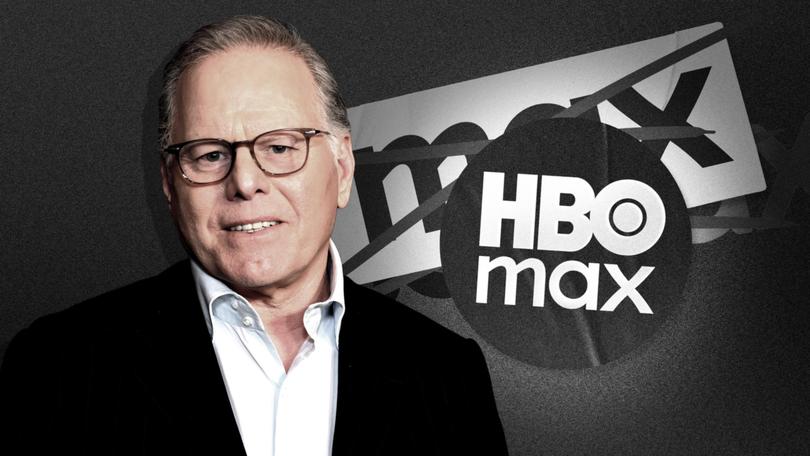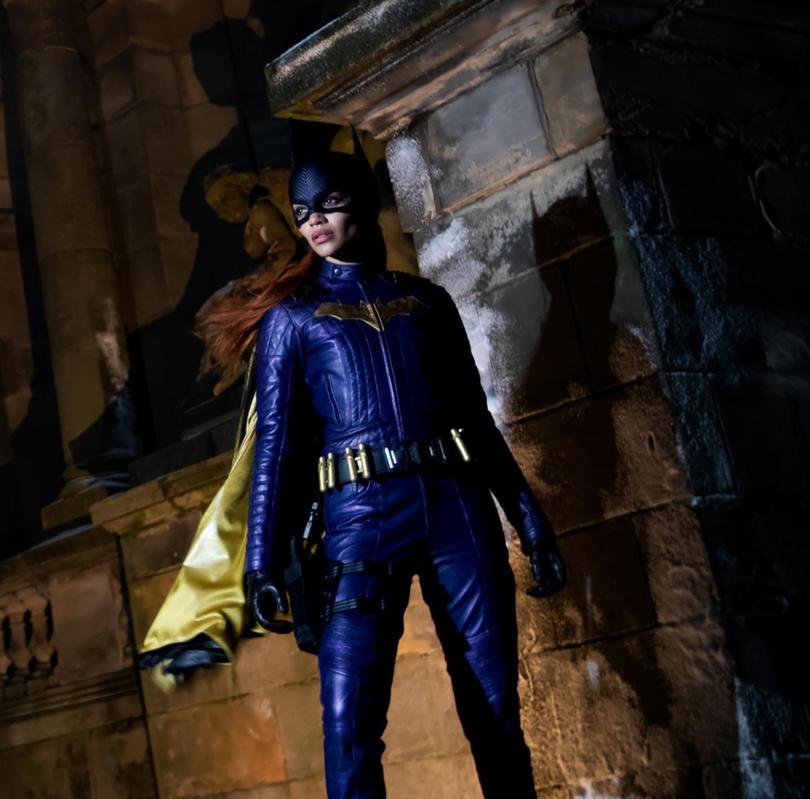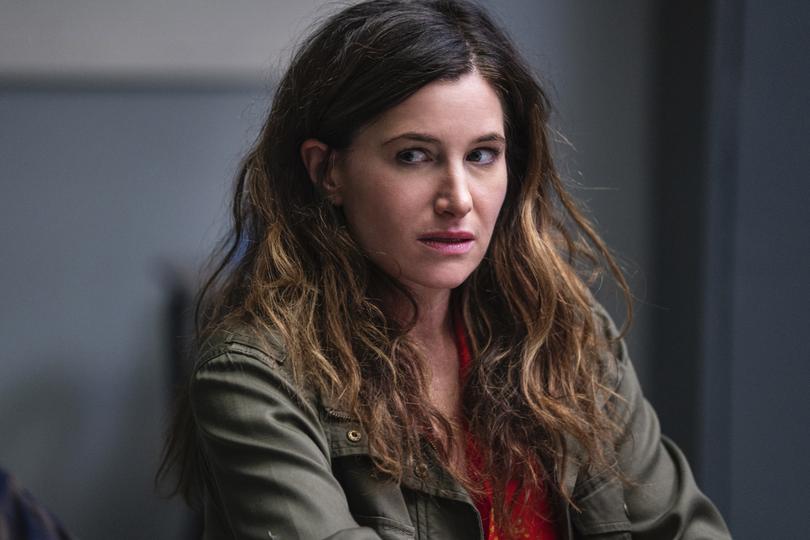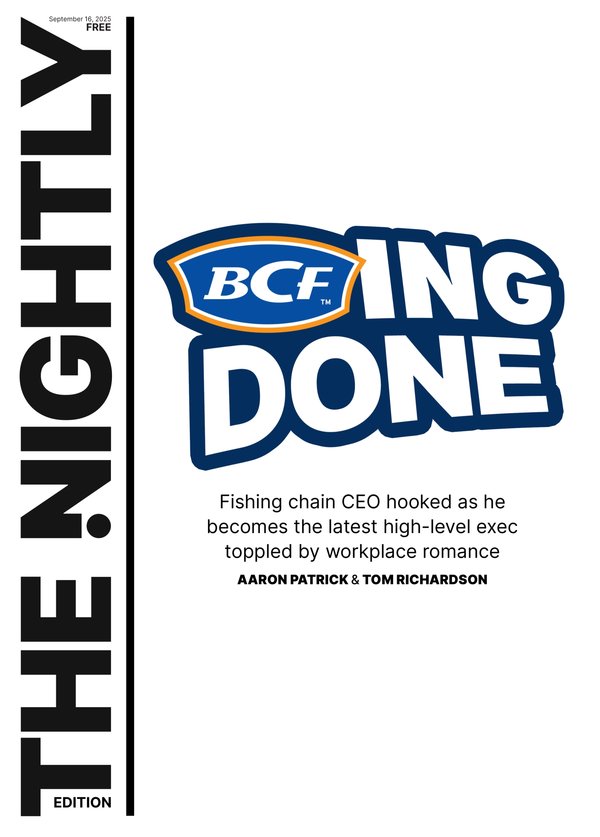Warner Bros Discovery boss David Zaslav’s embarrassing backdown

The two most prominent studios bosses in Hollywood are Disney honcho Bob Iger and Warner Bros Discovery’s David Zaslav.
Among the Disney diehards, Iger is like a god. At the D23 fan convention in 2024, a stadium of 12,000 fans reserved its loudest, most enthusiastic standing ovation for not The Rock, Jude Law or Jamie Lee Curtis, but Iger, a suited executive.
Iger was onstage this week at Disney’s upfronts, an annual showcase for advertisers hawking the studio’s upcoming programming. The following day, Warner Bros Discovery held its presentation at New York City’s Madison Square Garden. Zaslav was conspicuously absent.
Sign up to The Nightly's newsletters.
Get the first look at the digital newspaper, curated daily stories and breaking headlines delivered to your inbox.
By continuing you agree to our Terms and Privacy Policy.Would it have been awkward for the chief executive to have been present when the company reversed course on his decision two years earlier to drop the “HBO” from the name of WBD’s streaming platform?
WBD may be able to poke fun at itself for going back to HBO Max from Max with its cheeky social media posts, but the symbolism is significant, especially for what it says about the boss whose compensation for the four years to December has totalled $US387.5 million while the value of the company he helped merge has plummeted about two-thirds.
It’s been a few rocky years since Zaslav helped engineer the marriage of Discovery, the company he was running, with WarnerMedia, which at the time had been owned by AT&T. The merger combined legacy studio Warner Bros, which owned premium cabler and streamer HBO, CNN and Turner Sports, with Discovery’s suite of lifestyle brands Discovery Channel, Food Network and HGTV.

The merger was supposed to enable cost-savings and supercharge the value of the now combined audience and subscriber base. That’s why, Zaslav had argued, the HBO brand had to be dropped from the streaming service name.
When the change was announced in 2023, Zaslav called it a “real moment for us” and that it was “our rendezvous with destiny”.
Max was supposed to represent the shift to a broader, more mainstream brand that would encompass shows from the Discovery tent such as Alien Encounters: Fact or Fiction, MILF Manor and 90 Day Fiance, as well as HBO classics such as The Sopranos, Succession and The White Lotus.
It wanted to be for everyone, and the argument was that HBO was a brand for elites and would turn off “everyday” people who didn’t worship at the altar of premium scripted series.
Perhaps it shouldn’t have been surprising that Zaslav couldn’t distinguish the difference between The Last of Us and Say Yes to the Dress. He had been at Discovery since 2006, where he had turned the nature documentary-focused network into a reality TV-driven one, and had little experience in the scripted space.
As a brand, HBO stood for ambition in storytelling and filmmaking. It is the core flank of the Golden Age of TV, and its old tagline in the US was “It’s not TV, it’s HBO”. Even Australian audiences know what it means when something is a HBO show. It comes with automatic cache.

To try to scuttle that, as if the business was embarrassed by quality, was a fundamental misunderstanding of what audiences will pay for.
In its retreat, Zaslav said in a statement that the rebrand back to what he tried to excise reflected the growth in its streaming service hinged on “the quality of our programming” and that HBO “represents the highest quality in media”.
Influential entertainment industry journalist and commentator Matt Belloni today wrote in Puck that the name changeback was a “retreat from the supposed value proposition of Max, the whole Zaslav justification for the Warner Discovery transaction in the first place”.
He added, “With notable exceptions, most of the cheapo, lean-back Discovery shows that Zaslav built his career on don’t matter nearly as much in an on-demand ecosystem where the Max service is not the first choice for consumers.
“Turns out, most of that stuff is deadweight (…). Now a lot of the volume that was touted as the secret weapon to competing in the streaming wars is being purged from the service.”
The irony of removing a lot of that Discovery programming is that Zaslav earnt his recent blaggard reputation in Hollywood because he did exactly that to a raft of Warner Bros titles when he arrived, literally, moving from New York City, as boss of the merged entity.
He promised to cut $US3 billion in the first two years and set about swinging the scythe.

Thousands of staff were made redundant, divisions were restructured or shut down and it struck a line through upcoming shows.
There was a limited window after the merger in which WBD could capitalise on extra tax write-offs, and this would prove to be Zaslav’s most controversial move. Because it wasn’t just the back-end he was fiddling with, this time, it was the audience that were affected.
Projects are constantly axed in Hollywood, but rarely would a studio cancel and then shelve completed or near-completed work.
First, it was Batgirl, a Scooby Doo movie and the fourth season of Snowpiercer. All had completed filming and were in various stages of post-production.
Batgirl was the most conspicuous victim and competing narratives played out in the media. The movie was “unsalvageable” went one version while others just pointed to low test scores that could’ve been fixed with reshoots.
Instead, Zaslav and his team took the tax write-off of the $US90 million that had already been spent, and now didn’t have to dole out more money on post, marketing and release and damned the film to the vault, never to be seen by anyone.
Leslie Grace, the actor who played the eponymous superhero, later gave an interview about finding out her work had been canned via the media.
She told Variety, “When we were expecting XYZ amount of support and money to expand scenes, to do pick-up shots and those things of things, that was a gut punch. But then we learned that it was in the interest of writing down some debt? That part really stung.”
The project’s directors, Adil Arbi and Bilall Fallah, weren’t even allowed access to look at the footage they had filmed. The fans were incensed, and they weren’t buying Zaslav’s declaration that he had shelved the movie to “protect” the DC brand.

He was also behind the axing of Coyote vs Acme, while existing shows and movies such as Westworld, Minx, The Time Traveller’s Wife, Mrs Fletcher, Camping, Vinyl, Run and Moonshot were pulled off Max because of cost-cutting.
To them, he was a bean counter who had betrayed the artists. His words that he greatly respected the legacy of Warner Bros rang hollow.
It also didn’t help his image when, during the 2023 Hollywood writers strike, Zaslav threw a lavish party for the studio’s birthday at the Cannes Film Festival, held at the glitzy Hotel du Cap-Eden-Roc.
Former Vanity Fair editor Graydon Carter organised everything and attendees included Leonardo DiCaprio and Robert De Niro, but when writers were protesting on the picket line because they had to drive Ubers to make ends meet, the optics were terrible.
GQ called him “The most hated man in Hollywood” but later pulled down the article after a dispute with WBD.
It’s also not his only indulgence at a time of tightened belts. Zaslav famously pushed for the greenlight and a reported $US50 million budget for the movie The Alto Knights, a gangster pic starring De Niro and written by Zaslav’s friend, Nick Pileggi. It ended up grossing $US9.5 million worldwide.
WBD’s discovery this week that quality matters more than quantity is a long-overdue admission. While it looks like a step back, it could also be a step forward. Zaslav, despite his tumultuous four years at the helm, looks to be bruised but safe because he still has, for now, the support of the board, and recent hits including Sinners and Minecraft doesn’t hurt.
He’s now even singing from the same song sheet as Iger, who earlier this month also said the days of flooding with quantity was over. What’s old is new again, for now.

